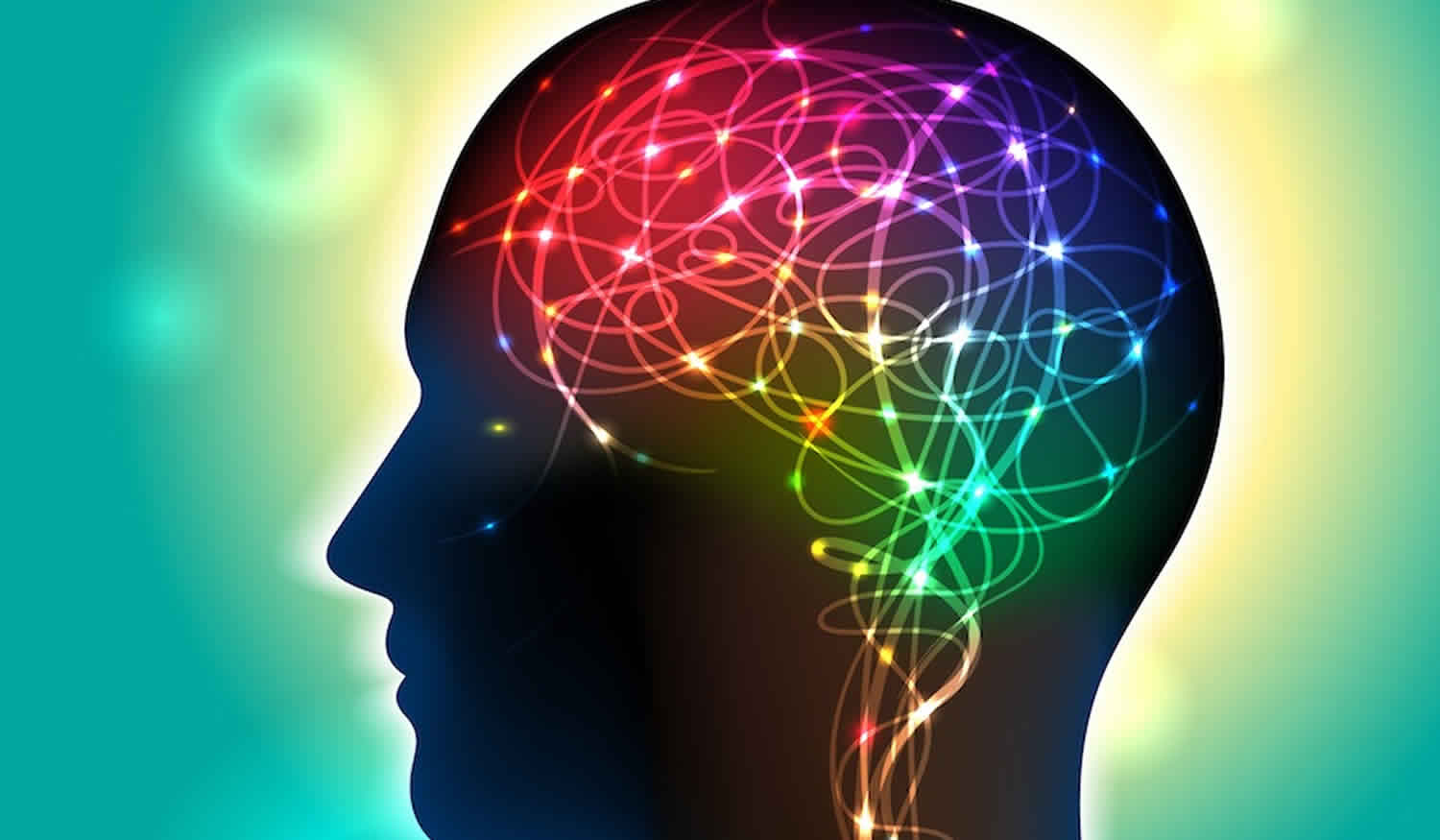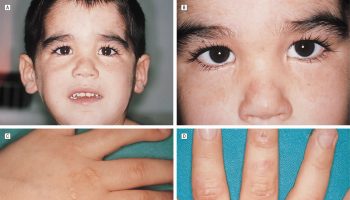Confabulation
Confabulation also called “honest lying”,refers to the production or creation of false or erroneous memories without the intent to deceive 1. Alternatively, confabulation is a falsification of memory by a person who, believes he or she is genuinely communicating truthful memories 2. Individuals who confabulate have no recognition that the information being relayed to others is fabricated. Confabulating individuals are not intentionally being deceptive and sincerely believe the information they are communicating to be genuine and accurate 1. Confabulation ranges from small distortions of actual memories to creation of bizarre and unusual memories, often with elaborate detail. These false memories may consist of exaggerations of actual events, inserting memories of one event into another time or place, recalling an older memory but believing it took place more recently, filling in gaps in memory, or the creation of a new memory of an event that never occurred 3. While some confabulated memories are easier to identify as false, in other cases, the confabulated memory may be so personal and unique, only a corroborating witness like a family member or close friend may be able to confirm the veracity of the memory. Confabulation also occurs when an individual unintentionally mistakes imagined events as actual memories 4. The vividness with which clients describe their memories may convince some mental health professionals into believing the memories are real. Even when the client is presented with information that directly conflicts with their version of events, they will persist in believing their memories are wholly accurate. Mental health professionals must be vigilant about its identification to gather accurate information from a client and to provide optimal treatment strategies.
Although confabulations can occur in non-impaired populations, confabulation has been known to occur among clients with brain damage, Fetal Alcohol Spectrum Disorder (FASD), traumatic-brain injury (TBI), and Wernicke-Korsakoff syndrome 1. As such, it is imperative for mental health professionals to be familiar with confabulation because of the negative impact it can have on screening, assessment, intake, and treatment planning processes.
Summary
Confabulation can have varied effects across all mental health-related settings. For example, confabulation can bring forth a number of consequences in mental health treatment settings. Foremost, accurately identifying confabulation can be difficult for mental health professionals. When confabulation goes unrecognized, inaccurate information can contribute to misdiagnoses and less than optimal intervention and treatment strategies. To protect against the harmful effects of confabulation, mental health professionals need to incorporate corroborative information including collateral informants (e.g., family members) and sources (e.g., medical and criminal justice records), seek out additional education and training opportunities, and consult with experts when confabulation is suspected or confirmed.
Confabulation causes
While confabulations can occur in individuals with no identified deficits or disorders, there are certain psychological and neurological disorders that may increase the incidence of confabulation. Mental health professionals should consider the possibility of confabulation when working with the following populations. The most common reports of confabulation are in patients with Korsakoff syndrome from Wernicke encephalopathy, wherein patients have anterograde amnesia in addition to confabulations 5. Confabulation has been seen in several other disease processes to include Alzheimer dementia, traumatic brain injury, schizophrenia, bipolar disorder, anterior communicating artery aneurysms, and cortical blindness with Anton syndrome 6. Confabulation can, however, also present in otherwise healthy patients 7.
Multiple reported lesions have correlations with confabulation. While most disorders associated with confabulation are related to lesions in the orbitofrontal or ventromedial prefrontal cortex of the frontal lobe, errors in processing may also occur within the hypothalamus, mammillary bodies, and the dorsomedial nucleus of the thalamus 5. Due to the complex physiology, it is difficult to determine the exact mechanism of false memories 6. There are multiple theories regarding the evolution of and motivation behind confabulation, but there is no conclusive data 8. Memory tests may identify errors in executive function, temporal context confusion, or reduced memory capacity 9.
Alzheimer’s disease
Alzheimer’s disease is among the most common types of dementia. Alzheimer’s disease is a progressive disease that interferes with a variety of cognitive tasks, including memory, thinking, planning, and the apprehension of reality 10. The diagnosis of Alzheimer’s disease must include a decline in memory as well as a decline in at least one area of cognitive functioning such as language comprehension or production, correctly recognizing objects, and planning and carrying out complex tasks 11. The subjective cognitive decline may be one of the first markers of Alzheimer’s disease 12. Alzheimer’s disease entails neuronal as well as synaptic loss. Additionally, there are positive identifiers that include “plaques” and “tangle” – proteins that interfere with proper neuronal communication. It is currently theorized that the progressive nature of neuronal degeneration comes to affect the frontal lobe, and “reality monitoring” is compromised. It is this degradation of the reality monitoring functioning of the frontal lobe that suggests a causal role in the construction and belief in confabulations 13.
Anosognosia
Anosognosia is a condition in which the afflicted denies having an illness or disorder, which is readily apparent to all others 14. The most frequent occurrence is associated with those afflicted by stroke, and subsequently, suffer hemiplegia-the loss or dramatic reduction in the ability to coordinate motor activity on one lateral side of the body (right or left). When asked, for instance, to move the paralyzed arm to touch the nose, the patient may respond that he or she is “tired”, or may, in fact, insist that the act was successfully completed, when indeed it was not, which could be considered a form of confabulation.
Anton’s syndrome
Anton’s syndrome is a rare disorder. It is a type of anosognosia in which the patient is blind, yet denies being so. The individual maintains with high confidence that they suffer no visual deficits. From a physiological basis, there is absolute blindness, but the patient reports visual perceptions 15. If asked to describe the surroundings of the doctor’s office, for instance, they will report the typical scene of the typical doctor’s office. As in other cases of confabulation, there is no intent to deceive; they have a false belief in their ability to perceive the world visually.
Fetal Alcohol Spectrum Disorder
Fetal Alcohol Spectrum Disorder (FASD) is a life-long persistent neurodevelopmental disorder resulting from prenatal alcohol exposure. Fetal Alcohol Spectrum Disorder (FASD) is characterized by a diverse array of cognitive (e.g., short- and long-term memory, intelligence, and attention), social (e.g., social pressure, social cues, and communication skills), and adaptive (e.g., decision-making and problem-solving abilities) deficits 16. As a result of the array of deficits associated with fetal alcohol spectrum disorder, individuals impacted by this disorder may be at an increased risk to confabulate compared to their non-FASD counterparts. Confabulation of new memories from real and fictional experiences is a common issue in fetal alcohol spectrum disorder. A combination of the cognitive (e.g., executive deficits), social (e.g., suggestibility, eagerness to please others), and adaptive deficits of fetal alcohol spectrum disorder likely contribute to the manifestation of confabulation. In response to memory gaps, individuals with fetal alcohol spectrum disorder may confabulate to render a complete story 4.
Post-traumatic stress disorder (PTSD)
Post-traumatic stress disorder (PTSD) is noted in the Diagnostic and Statistical Manual of Mental Disorders 5th edition (DSM-5) 17 as a disorder that results from a traumatic experience and is characterized by symptoms such as intrusion, avoidance, negative affect and/or thoughts, and increased arousal. Individuals who have increased anxiety and trauma may be more prone toward confabulation. The stress incurred during the trauma may interfere with memory encoding and retrieval. Interviewers and therapists should maintain a calm demeanor and not engage in confrontational questioning.
Schizophrenia
Schizophrenia, commonly viewed as a thought disorder, is noted in the Diagnostic and Statistical Manual of Mental Disorders, 5th edition (DSM-5) as a brain disorder that affects how individuals think (e.g., delusions), feel (e.g., flat or inappropriate affect), and perceive (e.g., hallucinations) 17. The presence of schizophrenia may increase the risk for confabulation 18. In a study by Simpson and Done 19, patients diagnosed with delusional schizophrenia demonstrated confabulation more than both patients without delusions and control subjects without mental health issues. Further, patients diagnosed with delusional schizophrenia exhibited memory errors during the recall of stories but not word lists. This is in contrast to patients with traumatic brain injuries, where errors are common during both the recall of stories and word lists. As such, confabulation may be related to the verbal comprehension impairments and organizational deficits of schizophrenia. Nonetheless, confabulation must be carefully distinguished from disordered thought, as both have the potential to be consistent across time 20.
Traumatic-brain injury
A traumatic brain injury (TBI) occurs when an external force alters brain functioning or results in some other form of brain injury” 21. Traumatic-brain injuries can be characterized by deficits in neurological processes and memory along with changes in mental states and consciousness. Confabulation may be a symptom of traumatic brain injury (TBI), a brain dysfunction that results from a blow to the head 22. The diagnosis of traumatic brain injury may be complicated by confabulation 23. Specifically, the client may simply recall inaccurate information during the assessment process that decreases the likelihood of accurate diagnosis. Asking a client if they have suffered brain injury or been diagnosed with a TBI may not prove helpful to the practitioner. Therefore, consulting with close family and friends may yield a more accurate picture of the client’s medical history 23.
Wernicke-Korsakoff Syndrome
Wernicke-Korsakoff Syndrome is a neurological condition caused by a vitamin B1 (thiamine deficiency) and is frequently seen in individuals who excessively consume alcohol in conjunction with poor nutritional diets 24. Wernicke-Korsakoff Syndrome is composed of two related conditions: Wernicke’s encephalopathy and Korsakoff Syndrome. Wernicke-Korsakoff Syndrome is characterized by cognitive deficits including impairments in executive function and memory. As a result, the presence of Wernicke-Korsakoff Syndrome often increases the likelihood of confabulation 25.
Confabulation thought process
Confabulation can range from small changes or updates to memories of an actual event to the large-scale creation of an event that never took place 26. Confabulations may replace details of a memory with other details that are not true (e.g., eating crab cakes this morning as opposed to the reality of eating eggs, although the person has never eaten crab cakes), placing details of a correct memory into a different occurrence or time frame (e.g., eating oatmeal this morning as opposed to the reality of eating eggs, although oatmeal has sometimes been eaten for breakfast), or simply adding information to the memory that makes sense based on experience of never occurring (e.g., eating grits for breakfast although the person has never had grits before). It is even possible to have incorrect memories for bizarre occurrences that could never have occurred (e.g., “remembering” that the president visited your home on your birthday and brought you breakfast). Regardless, individuals remain confident in these confabulated memories, even when confronted by contradictory evidence 27.
Lying versus confabulation
Confabulation is distinct from lying. By definition, individuals who suffer from confabulation are not aware that the memory is inaccurate and are not intentionally trying to deceive anyone 28. Mental health professionals may misinterpret confabulation as a malicious attempt to deceive rather than the product of neuropsychological deficits. Whether distorted memories of an actual event or the creation of an imagined event, confabulation is not the same thing as lying. Confabulation also differs from malingering in that the person who confabulates is not doing it for any secondary gain or personal incentive 29.
Spontaneous versus provoked confabulation
Current theory suggests that confabulations fall into two sub-classes – provoked and spontaneous 30. Provoked confabulations are those generated in response to a question. Researchers believe that provoked confabulations are a failure of temporal correspondence to real memories 31. Spontaneous confabulations are considered a failure of “reality monitoring” -a frontal lobe function 32. They are independently generated and are more “fantastic” and “grandiose” in nature and occur without any prompting.
Verbal versus behavioral
Confabulation can be manifested in different ways. Verbal confabulation refers to the statement of a false, distorted, or misinterpreted memory whereas behavior confabulation happens when an individual takes physical actions in response to their false memory 33. An example of behavioral confabulation would be making a birthday cake for a spouse whose birthday was two months ago. Both types of confabulation still reflect inaccurate memories and may be difficult to detect by mental health professionals given the confidence that is displayed by the individual in the accuracy of the memory.
Malingering versus confabulation
Malingering is an effortful attempt to deceive whereas confabulation is not purposefully deceptive 34. In other words, individuals who are malingering recognize that they are not honest whereas individuals who confabulate believe that they are being honest. As such, as part of a comprehensive screening and assessment process, mental health professionals should become familiar with the similarities and differences between malingering and confabulation.
Delusions versus confabulation
Delusions are false beliefs that usually occur in the context of a psychiatric disorder (e.g., schizophrenia or other psychotic disorder) 35. In contrast, confabulations are false memories created to address gaps in memory. These confabulations usually occur in the presence of a neurological condition like dementia or Wernicke-Korsakoff Syndrome. Although both delusions and confabulations are false beliefs, there are key ways to distinguish them 36. If the false belief is related to the recall of memories, the belief is probably confabulation. In contrast, delusions are more likely to influence an individual’s behavioral choices across an array of situations. For example, being convinced that a spouse’s birthday is this month as opposed to two months ago was noted as an example of confabulation. On the other hand, believing that a deceased spouse continues to exist through brain waves and controls how the other individual acts would be a delusion. Identifying the origins of these false beliefs is an important step for the treatment of these impairments.
Confabulated memories
According to Gilboa and Verfaillie 37, there are at least three contributing factors to confabulation. First, an adequate memory of a specific event may never have been encoded. Second, memories of another event may have altered the memories of the original event, resulting in a memory that is no longer accurate. Third, the individual may possess an unconscious motive to alter the memory.
False memory
Characterized as a false memory or “honest lying”, confabulation can take on several forms 38. On the one hand, confabulation may be the exaggeration of an existing memory or the coalescence of different existing memories. On the other hand, confabulation can be the outright generation of an entirely new memory of a fictional event. Regardless of the form of confabulation, it is essential to investigate the veracity of memories through collateral informants and other corroborating evidence.
Memory loss
Confabulation has been hypothesized as a way for individuals to compensate for memory loss. That is, an individual with memory loss may simply confabulate to fill in a gap in their memory 31. However, not all individuals who suffer from memory loss exhibit confabulation. For example, the severity of amnesia is not associated with the presence or frequency of confabulation. Further, confabulation may even occur in the absence of memory-related impairments 39.
Memory confidence
People tend to assume that the accuracy of a memory increases with the reporter’s level of confidence in the memory. However, clients may be reporting a confabulated memory with a greatly inflated level of confidence. The confabulation is false, by definition, yet they have confidence in its accuracy 40. As such, mental health professionals should be careful not to mistake a client’s confidence in memory as an indicator of the memory’s accuracy. Fiala and Nichols 41, on the other hand, cite studies that show that the individuals who confabulate are initially less confident in its accuracy, often beginning their false recollection with, “I don’t know”.
Confabulation complications
Many consequences can result from confabulation, some of them more serious than others. For example, a person who confabulates may upset and frustrate loved ones, but unintentionally lying to a law enforcement officer or court official could result in arrest and incarceration. Mental health professionals should be aware of these consequences and provide care that is more comprehensive and to help clients avoid these negative outcomes.
Counseling ramifications
In addition to family members and friends, confabulation can have a profound impact on mental health professionals. Treating these challenging clients is complicated by the fact that mental health professionals cannot rely on the information provided by their clients, which can result in tedious, repetitive, and frustrating interactions 42. To minimize the magnitude of frustration, mental health professionals should remind themselves that confabulation may be the result of neurological impairment that is beyond the control of the client. It is helpful to corroborate the information by asking family members or using archival data 43.
Family impact
A systemic approach to addressing confabulation involves consideration of the impact that confabulation has on family members. As can be expected, confabulation often results in family members feeling sad, fearful, frustrated, or angry. Confabulation also affects the trust between family members 23. To improve the situation, mental health professionals should assure family members that such emotional responses are not uncommon when dealing with a loved one exhibiting confabulation. Further, mental health professionals should make sure that the family recognizes that confabulation is not purposeful and that family support remains important in any intervention. Family members can gently provide evidence or information to help the individual correct the erroneous memory but should not engage in arguing or confrontation 43.
Legal considerations
Because many legal processes strongly rely on the memory of a suspect, defendant, or witness, confabulation can have significant consequences in this arena. If present, confabulation may cast doubt on confessions and eyewitness testimony 44. In addition, criminal justice practitioners may perceive a person’s recollections to be deceptive and result in increased scrutiny regarding the veracity of the person’s recall and/or criminal charges. For example, lying under oath could result in the individual being charged with perjury. Mental health professionals who perform services within the criminal justice system are strongly advised to be familiar with confabulation.
Suggestibility
Individuals who suffer from confabulation may also be prone to suggestibility 45. Specifically, these individuals may be likely to adopt the statements or views of others when prompted by repeated questioning and negative feedback. This is a particular concern during police interrogations and questioning by attorneys during testimony. This can also create challenges during the initial assessment and intake process for mental health treatment. Rather than ask closed ended or no/yes questions, interviewers should ask open-ended questions.
Confabulation diagnosis
Confabulation can complicate the screening and assessment process. As previously noted, there are several factors related to confabulation, including a history of brain injury, neurological deficits, false stories that may be detailed or strange, or conviction or confidence in the false memory. Unfortunately, these factors may be indicative of several different mental health disorders. Below we offer some suggestions to improve screening and assessment of confabulation in clinical settings.
Recognition
Despite appearances of confidence and accuracy, individuals may confabulate entirely false memories of details or events 39. As such, the recognition of confabulation remains incredibly difficult for mental health professionals. In such cases, a referral for a neurological evaluation maybe warranted. While certain neurological conditions increase the risk for confabulation, not all cases of confabulation are caused by neurological issues 42.
Identification
There is a lack of consensus on the causal origins of confabulation and, subsequently, the definition of confabulation 36. This situation is exacerbated by the fact that confabulation co-occurs with several different disorders and even in individuals with no neurological or mental health issues. As a result, mental health professionals often have difficulty recognizing and discerning when confabulation is taking place 43. The seriousness of these issues emphasizes why wider awareness of confabulation is essential in the mental health field.
Missed and misdiagnosis
Clients who confabulate may over- or under-endorse mental health-related symptoms. As such, confabulation can lead to missed and misdiagnosis. This is especially the case when mental health professionals lack the appropriate awareness of this complex topic. When confabulation is suspected, it is imperative for mental health professionals to fact check, clarify, and verify statements provided by clients who confabulate. This should also include reviewing multiple data sources to confirm accounts provided by clients with a history of confabulation 34.
Other considerations
The presence of memory deficits increases the risk for confabulation 46. Such deficits could relate to autobiographical memories or source monitoring 47. Further, individuals with active fantasy lives, gullibility, and overactive imaginations could be prone to confabulation. Similarly, confabulation can even be influenced by something as common as everyday interactions with others or social media. These are all areas that should be considered during the screening and assessment process.
Knowledge deficit
All confabulations share a central theme – a knowledge deficit. The deficit can be related to the corporeal body, as seen in anosognosia. The deficit can be of knowledge of reality, as seen in “spontaneous” confabulations, and in Alzheimer’s disease. The deficit can be of knowledge of accurate temporal mapping to relatively reasonable “memories”, as seen in provoked confabulations. Finally, the deficit can concern knowledge of our own perceptions, as seen in Anton’s syndrome.
Confabulated treatment
In some cases, confabulation dissipates without treatment 1. Effective interventions for confabulation may require that mental health professionals establish and maintain working relationships with other professionals and providers who possess experience in dealing with confabulation in mental health settings 34.
Treatment most commonly revolves around treating the underlying disorder, such as using thiamine to treat Korsakoff syndrome or antipsychotic medications to treat schizophrenia. interprofessional cognitive rehabilitation, however, may also be helpful. Specific interventions such as maintaining a diary and specific therapies such as self-monitoring training may also be efficacious 48.
When mental health professionals work with a client who may be confabulating, it is vital that the professional tries to corroborate any information self-reported by the client. This could take the form of talking to collateral informants like friends and family members or finding corroborating evidence such as medical or criminal justice records 43. The incorporation of these methods has the potential to improve assessment and, in turn, treatment outcomes. The process of corroboration is particularly important in situations where memories can have a profound impact.
Establishing the therapeutic relationship
When working with clients who may be confabulating, mental health professionals must keep in mind, that confabulation is not purposeful or mischievous in intent. To establish an effective therapeutic relationship, mental health professionals may consider employing a relaxed pace, open-ended questions, and easy-to-understand language. Methods that may be beneficial include using memory diaries and introducing the client to patient self-monitoring and other ways to monitor memories 49. Finally, the confabulations themselves may provide glimpses into the client’s triggers for confabulation and other treatment needs.
Support system
If an individual suffers from confabulation, the presence of a strong support system is imperative to ensure the accurate communication of personal and health-related information. The reliance on such a group of collateral informants has the potential to maximize the accuracy of information when making important life-altering decisions 42. The mental health professional, with permission from the client, should educate the family about confabulation and outline what can be expected and how to address confabulations. This knowledge gives the family an understanding and keeps them engaged with the individual.
- Brown J, Huntley D, Morgan S, Dodson KD, Cich J (2017) Confabulation: A Guide for Mental Health Professionals. Int J Neurol Neurother 4:070. doi.org/10.23937/2378-3001/1410070 https://clinmedjournals.org/articles/ijnn/international-journal-of-neurology-and-neurotherapy-ijnn-4-070.pdf[↩][↩][↩][↩]
- Ciaramelli E, Ghetti S (2007) What are confabulators’ memories made of? A study of subjective and objective measures of recollection in confabulation. Neuropsychologia 45: 1489-1500.[↩]
- Nedjam Z, Devouche E, Dalla Barba G (2004) Confabulation, but not executive dysfunction discriminate AD from frontotemporal dementia. Eur J Neurol 11: 728-733.[↩]
- Brown J (2017) Fetal alcohol spectrum disorder and confabulation: A clinical, forensic, and judicial dilemma. The Journal of Special Populations 1: 1-11.[↩][↩]
- Arts NJ, Walvoort SJ, Kessels RP. Korsakoff’s syndrome: a critical review. Neuropsychiatr Dis Treat. 2017;13:2875-2890.[↩][↩]
- Wiggins A, Bunin JL. Confabulation. [Updated 2019 Jan 26]. In: StatPearls [Internet]. Treasure Island (FL): StatPearls Publishing; 2020 Jan-. Available from: https://www.ncbi.nlm.nih.gov/books/NBK536961[↩][↩]
- Martín Juan A, Madrigal R, Porta Etessam J, Sáenz-Francés San Baldomero F, Santos Bueso E. Anton-Babinski syndrome, case report. Arch Soc Esp Oftalmol. 2018 Nov;93(11):555-557.[↩]
- Schnider A, von Däniken C, Gutbrod K. The mechanisms of spontaneous and provoked confabulations. Brain. 1996 Aug;119 ( Pt 4):1365-75.[↩]
- Fujikawa M, Nishio Y, Kakisaka Y, Ogawa N, Iwasaki M, Nakasato N. Fantastic confabulation in right frontal lobe epilepsy. Epilepsy Behav Case Rep. 2016;6:55-7.[↩]
- Wells CE, Whitehouse PJ (1996) Cortical dementia. In: BS Fogel, RB Schiffer, SM Rao, Neuropsychiatry. Williams and Wilkins, Baltimore, Maryland.[↩]
- Alzheimer’s Association (2013) Alzheimer’s disease facts and figures. Alzheimer’s & Dementia 9: 208-245.[↩]
- Jessen F, Amariglio RE, Van Boxtel M, Breteler M, Ceccaldi M, et al. (2014) A conceptual framework for research on subjective cognitive decline in preclinical Alzheimer’s disease. Alzheimers Dement 10: 844-852.[↩]
- Budson AE, Daffner KR, Desikan R, Schacter DL (2000) When false recognition is unopposed by true recognition Gist-based memory distortion in Alzheimer’s disease. Neuropsychology 14: 277-287.[↩]
- Perrotin A, Desgranges B, Landeau B, Mezenge F, La Joie, et al. (2015) Anosognosia in Alzheimer disease: Disconnection between memory and self related brain networks. Ann Neurol 78: 477-486.[↩]
- Goldenberg G, Mu W, Nowak A (1995) Imagery without perception-a case study of anosognosia for cortical blindness. Neuropsychologia 33: 1373-1382.[↩]
- Guerri C, Bazinet A, Riley EP (2009) Fetal Alcohol Spectrum Disorders and Alterations in Brain and Behavior. Alcohol Alcohol 44: 108-114.[↩]
- American Psychiatric Association (2013) Diagnostic and statistical manual of mental disorders. (5th edn), American Psychiatric Publishing, Arlington, VA.[↩][↩]
- Nathaniel-James DA, Frith CD (1996) Confabulation in schizophrenia: Evidence of a newform. Psychol Med 26: 391-399.[↩]
- Simpson J, Done DJ (2002) Elasticity and confabulation in schizophrenic delusions. Psychol Med 32: 451-458.[↩]
- Asp EW, Tranel D (2013) False Tagging Theory: Toward a unitary account of prefrontal cortex function. In: Stuss DT, Knight RT, Principles of Frontal Lobe Function. (2nd edn), Oxford University Press, New York, 383-416.[↩]
- Brown J, Louie J (2016) Traumatic-Brain Injury (TBI) and the criminal justice system: An introduction to a complex topic. Forensic Scholars Today 2: 1-4.[↩]
- Demery JA, Hanlon RE, Bauer RM (2001) Profound amnesia and confabulation following traumatic brain injury. Neurocase 7: 295-302.[↩]
- Brown J, Huntley D, Asp E, Fabrizio K, Wiley C, et al. (2016) Traumatic Brain Injury and Confabulation: An Introduction for Criminal Justice and Legal Professionals. The Journal of Special Populations 1: 1-13.[↩][↩][↩]
- Scalzo SJ, Bowden SC, Ambrose ML, Whelan G, Cook MJ (2015) Wernicke Korsakoff syndrome not related to alcohol use: A systematic review. J Neurol Neurosurg Psychiatry 86: 1362-1368.[↩]
- Kopelman MD, Ng N, Van Den Brouke O (1997) Confabulation extending across episodic, personal, and general semanticmemory. Cognitive Neuropsychology 14: 683-712.[↩]
- Shingaki H, Park P, Ueda K, Murai T, Tsukiura T (2016) Disturbance of time orientation, attention, and verbal memory in amnesic patients with confabulation. J Clin Exp Neuropsychol 38: 171-182.[↩]
- Turner MS, Cipolotti L, Yousry TA, Shallice T (2008) Confabulation: Damage to a specific inferior medial prefrontal system. Cortex 44: 637-648.[↩]
- Moscovitch M (1995) Confabulation. In: DL Schacter, JT Coyle, GD Fischbach, MM Mesulam, LE Sullivan, Memory distortion: How minds, brains, and societies reconstruct the past. Harvard University Press, Cambridge, 226-251.[↩]
- Brown J, Long-McGi J, Oberoi P, Wartnik A, Wresh J, et al. (2014) Confabulation: Connections between brain damage, memory and testimony. The Journal of Law Enforcement 3: 1-11.[↩]
- Kopelman MD (1987) Two types of confabulation. J Neurol Neurosurg Psychiatry 50: 1482-1487.[↩]
- Dalla Barba G, Boisse MF (2010) Temporal consciousness and confabulation: Is medial temporal lobe “temporal”? Cognitive Neuropsychiatry 15: 95-117.[↩][↩]
- Fotopoulou A, Conwa MA, Solm M (2007) Confabulation: Motivated reality monitoring. Neuropsychologia 45: 2180-2190.[↩]
- Rensen YC, Oosterman JM, van Damme JE, Griekspoor SI, Wester AJ, et al. (2015) Assessment of confabulation in patients with alcohol related cognitive disorders: The Nijmegen-Venray Confabulation List (NVCL-20). Clin Neuropsychol 29: 804-823.[↩]
- Brown J, Hesse M, Rosenbloom M, Harris B, Weaver J, et al. (2015) Confabulation in correctional settings: An exploratory review. The Journal of Law Enforcement 4: 1-8.[↩][↩][↩]
- Fotopoulou A (2010) The affective neuropsychology of confabulation and delusion. Cogn Neuropsychiatry 15: 38-63.[↩]
- Kopelman MD (2010) Varieties of confabulation and delusion. Cogn Neuropsychiatry 15: 14-37.[↩][↩]
- Gilboa A, Verfaellie M (2010) Telling it like it isn’t: The cognitive neuroscience of confabulation. J Int Neuropsychol Soc 16: 961-966.[↩]
- Moscovitch M (1989) Confabulation and the frontal system: Strategic versus associative retrieval in neuropsychological theories of memory. In: HL Roediger, FIM Craik, Varieties of memory and consciousness: Essays in honour of Endel Tulving. Lawrence Erlbaum Associates, Hillsdale, New Jersey, United States, 133-160.[↩]
- Burgess PW, Shallice T (1996) Confabulation and the control of recollection. Memory 4: 359-411.[↩][↩]
- Zaragoza MS, Payment KE, Ackil JK, Drivdahl SB, Beck M (2001) Interviewing witnesses: Forced confabulation and confirmatory feedback increase false memories. Psychol Sci 12: 473-477.[↩]
- Fiala B, Nichols S (2009) Confabulation, confidence, and introspection. Behavioral and Brain Sciences 32: 144-145.[↩]
- Huntley D, Brown J, Wiley CR (2016) Confabulation and mental health: A beginner’s guide. Behavioral Health 4: 1-9.[↩][↩][↩]
- Huntley D, Brown J (2016) Understanding Confabulation: An Introduction for Criminal Justice and Mental Health Professionals. Forensic Scholars Today 1: 1-4.[↩][↩][↩][↩]
- Clare ICH, Gudjonsson GH (1995) The Vulnerability of Suspects with Intellectual Disabilities During Police Interviews: A Review and Experimental Study of Decision Making. Mental Handicap 8: 110-128.[↩]
- Gudjonsson GH (2003) The psychology of interrogations and confessions: A handbook. Wiley, Chichester, UK.[↩]
- Hirstein W (2005) Brain fiction: Self-deception and the riddle of confabulation. MIT Press, Cambridge, MA, USA.[↩]
- Johnson MK, Hashtroudi S, Lindsay DS (1993) Source monitoring. Psychol Bull 114: 3-28.[↩]
- Mendez MF, Fras IA. The false memory syndrome: experimental studies and comparison to confabulations. Med. Hypotheses. 2011 Apr;76(4):492-6.[↩]
- Dayus B, Vanden Broek MD (2000) Treatment of stable delusional confabulations using self-monitoring training. Neuropsychological Rehabilitation 10: 415-427.[↩]





